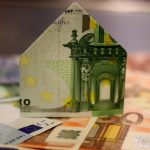Comprehensive Guide to Mortgage Loan Fraud Audits and Fraud Stoppers
Introduction:
In the complex world of mortgage loans, fraud is an ever-present threat that impacts both lenders and borrowers. Mortgage fraud can take many forms, from income misrepresentation to identity theft, leading to significant financial losses and a tarnished reputation. As the mortgage industry continues to grow, so does the risk of fraud. Mortgage loan fraud audits have become an essential tool for identifying, preventing, and mitigating fraudulent activities that could otherwise go unnoticed.
Fraud stoppers, such as advanced audit techniques, play a crucial role in detecting irregularities and providing a clear picture of the true financial state of a mortgage. These audits are designed to protect both parties by scrutinizing loan documents and ensuring compliance with lending laws and regulations. Understanding the role of mortgage loan fraud audits and fraud stoppers can help individuals and institutions safeguard their investments and maintain trust in the mortgage market.
In this blog, we will delve into the importance of mortgage loan fraud audits, how they function, the types of fraud that can be detected, and why fraud stoppers are essential. By the end of this article, you will have a better understanding of the tools and strategies used to prevent fraud in the mortgage industry.
- Understanding Mortgage Loan Fraud
What is Mortgage Loan Fraud?
Mortgage loan fraud refers to deliberate misrepresentation or omission of information related to a mortgage loan application or its approval process. It is typically perpetrated by either the borrower, the lender, or a third party involved in the transaction. Fraudulent activities can include falsifying income or assets, misrepresenting property values, or engaging in illegal schemes to secure loans that would otherwise not be approved. The consequences of mortgage fraud can be severe, including financial penalties, legal repercussions, and loss of credibility in the market.
Common Types of Mortgage Loan Fraud
Mortgage fraud can take many forms, with the most common being:
- Income Misrepresentation: Borrowers may falsify income details to appear more financially stable than they actually are. This can lead to loan approval for amounts the borrower cannot repay.
- Asset Misrepresentation: Borrowers may lie about their assets or provide false documents to show they have enough resources to cover the mortgage.
- Appraisal Fraud: This involves inflating the value of a property to secure a larger loan than it is worth. It is often done by appraisers in collaboration with lenders or borrowers.
- Identity Theft: Fraudsters may use stolen identities to apply for loans in the name of unsuspecting individuals, leaving victims with the consequences.
- Straw Buyer Schemes: A straw buyer is someone who agrees to buy a property on behalf of another person who does not qualify for a loan. This can involve falsifying personal details to obtain a loan for a property that will eventually be transferred to another party.
- The Role of Mortgage Loan Fraud Audits
What is a Mortgage Loan Fraud Audit?
A mortgage loan fraud audit is a comprehensive review of a loan’s documentation and financial history to detect any signs of fraudulent activity. Audits are typically carried out by forensic accountants or specialized mortgage fraud investigators who are trained to spot discrepancies and irregularities in loan documents, such as falsified income or misrepresented property values. The goal of the audit is to identify red flags and help prevent potential losses by ensuring the loan complies with both lender policies and legal regulations.
How Mortgage Loan Fraud Audits Work
Mortgage loan fraud audits involve several steps to thoroughly investigate a loan. The process typically includes reviewing application forms, credit reports, income documentation, asset statements, appraisals, and other supporting documents. The auditor will look for inconsistencies such as:
- Income discrepancies between the borrower’s stated income and tax returns or pay stubs.
- Unusual or incomplete documentation that could indicate fraud.
- Property valuations that appear inflated or not consistent with market trends.
- Signs of collusion between parties involved in the loan transaction.
Once these discrepancies are identified, they are documented and reported, which may trigger further investigations or legal actions.
- Why Mortgage Loan Fraud Audits Are Crucial
Protecting Financial Interests
Mortgage loan fraud audits are essential for protecting the financial interests of both lenders and borrowers. For lenders, fraud audits help minimize the risk of approving loans that may result in default or foreclosure. By identifying fraudulent activities early on, lenders can take preventative measures, such as denying loans or requiring additional documentation before proceeding.
For borrowers, fraud audits provide an opportunity to ensure they are not unknowingly involved in fraudulent schemes, particularly in cases of identity theft or when their personal information is used without their consent. Fraud audits also help maintain fairness in the lending process, ensuring that borrowers are not unfairly targeted or misled by dishonest practices.
Maintaining Market Integrity
Mortgage fraud undermines the integrity of the entire real estate market. When fraud is widespread, it can lead to inflated property values, unstable market conditions, and a lack of trust in the mortgage system. Conducting regular mortgage loan fraud audits helps maintain transparency and fairness in the market, fostering trust among all stakeholders, including lenders, borrowers, and regulators.
- Fraud Stoppers: Tools and Techniques to Prevent Mortgage Loan Fraud
Advanced Data Analytics
One of the most effective fraud stoppers in the mortgage industry is the use of advanced data analytics. These tools enable auditors to analyze vast amounts of data and identify patterns that may indicate fraudulent activity. By leveraging machine learning and predictive analytics, auditors can uncover hidden risks and detect anomalies in loan applications and financial statements.
Automated Fraud Detection Software
Automated fraud detection software is another powerful tool used to prevent mortgage loan fraud. These software solutions analyze loan applications and supporting documents in real-time, flagging any inconsistencies or potential red flags for further review. This technology can instantly detect common types of fraud, such as income misrepresentation, asset falsification, and appraisal inflation, allowing auditors to act quickly and efficiently.
Forensic Accounting
Forensic accountants are specialized professionals who use accounting principles to investigate and detect fraudulent activities in mortgage loans. They often rely on traditional auditing techniques, such as reviewing financial statements, cross-referencing records, and conducting interviews, to uncover any signs of fraud. Forensic accounting plays a critical role in identifying complex schemes that may not be immediately apparent through automated systems.
- The Impact of Mortgage Loan Fraud on the Economy
Losses for Lenders and Borrowers
Mortgage loan fraud can have significant financial consequences for both lenders and borrowers. For lenders, fraud can lead to defaults, foreclosures, and financial losses, as loans made to borrowers who cannot afford them often result in missed payments or legal action. Borrowers who become victims of mortgage fraud may face foreclosure, legal challenges, and long-term damage to their credit scores.
Wider Economic Implications
Beyond individual losses, mortgage loan fraud has broader implications for the economy. When large numbers of loans are affected by fraud, it can lead to a decrease in property values, rising default rates, and a lack of confidence in the housing market. These issues can ripple through the economy, affecting job markets, consumer spending, and even global financial systems.
- How to Protect Yourself from Mortgage Loan Fraud
Stay Informed and Vigilant
The best defense against mortgage loan fraud is education. Borrowers should take the time to understand the loan process, be aware of common fraud schemes, and recognize the signs of potential fraud. Always verify the authenticity of documents and seek professional advice if something seems suspicious.
Work with Trusted Professionals
Lenders and borrowers alike should work with trusted professionals, such as reputable mortgage brokers, real estate agents, and forensic auditors. By choosing experienced and qualified experts, individuals can reduce the risk of encountering fraudulent schemes or being misled during the mortgage process.
Use Fraud Stoppers
Implementing fraud stoppers, such as advanced data analytics, automated fraud detection software, and forensic audits, can provide an additional layer of protection against fraud. These tools help identify fraudulent activity early on, reducing the potential for financial loss and protecting the integrity of the mortgage process.
Conclusion:
Mortgage loan fraud is a serious issue that can have far-reaching consequences for both lenders and borrowers. By understanding the types of fraud that can occur and the importance of mortgage loan fraud audits, individuals and institutions can better protect themselves from potential risks. Fraud stoppers, such as advanced technology and forensic auditing, play a vital role in identifying fraudulent activities and ensuring the integrity of the mortgage process.
As mortgage fraud continues to evolve, staying vigilant and informed is essential for safeguarding financial investments. By implementing the right tools and strategies, such as fraud audits and detection software, individuals and businesses can mitigate the risk of fraud and secure a more stable financial future.
Call to Action:
Contact us today at (877)-399-2995 or visit Mortgage Audits Online to learn more. Secure your financial future with confidence!




